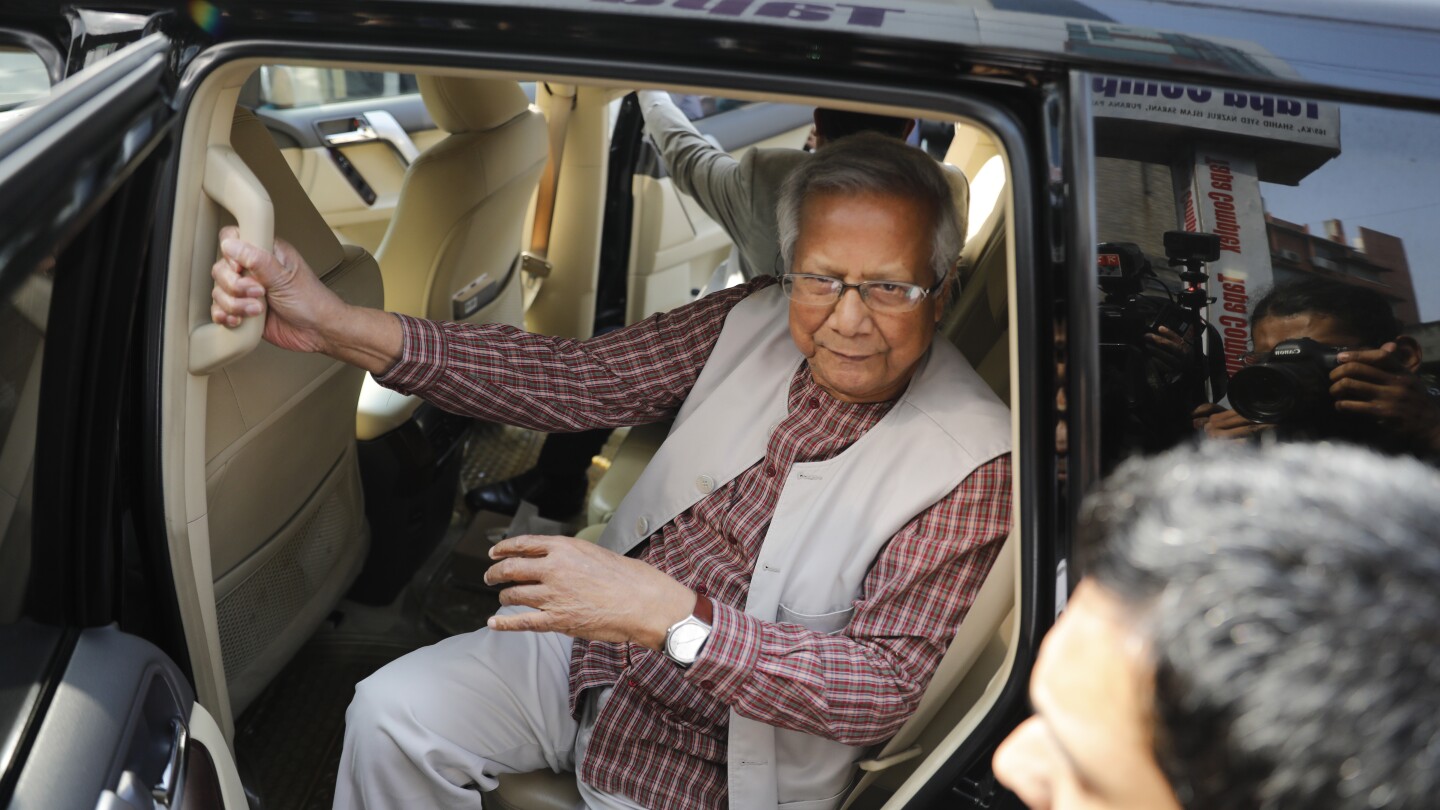DHAKA, Bangladesh (AP) — A labor court in Bangladesh’s capital Monday sentenced Nobel Peace Prize winner Muhammad Yunus to six months in jail for violating the country’s labor laws.
Yunus, who pioneered the use of microcredit to help impoverished people, was present in court and was granted bail. The court gave Yunus 30 days to appeal the verdict and sentence.
Grameen Telecom, which Yunus founded as a non-profit organization, is at the center of the case.
Sheikh Merina Sultana, head of the Third Labor Court of Dhaka, said in her verdict that Yunus’ company violated Bangladeshi labor laws. She said at least 67 Grameen Telecom workers were supposed to be made permanent employees but were not, and a “welfare fund” to support the staff in cases of emergency or special needs was never formed. She also said that, following company policy, 5% of Grameen’s dividends were supposed to be distributed to staff but was not.
Sultana found Yunus, as chairman of the company, and three other company directors guilty, sentencing each to six months in jail. Yunus was also fined 30,000 takas, or $260.
Yunus said he would appeal.
“We are being punished for a crime we did not commit. It was my fate, the nation’s fate. We have accepted this verdict, but will appeal this verdict and continue fighting against this sentence,” the 83-year-old economist told reporters after the verdict was announced.
This is the best summary I could come up with:
She said at least 67 Grameen Telecom workers were supposed to be made permanent employees but were not, and a “welfare fund” to support the staff in cases of emergency or special needs was never formed.
As Yunus is known to have close connections with political elites in the West, especially in the United States, many think the verdict could negatively impact Bangladesh’s relationship with the U.S.
But Foreign Secretary Masud Bin Momen on Monday said relations between Bangladesh and the U.S. would likely not be affected by an issue involving a single individual.
The leaders, including former U.S. President Barack Obama, former U.N. Secretary-General Ban Ki-moon and more than 100 Nobel laureates, said in the letter that they were deeply concerned by recent threats to democracy and human rights in Bangladesh.
Hasina responded sharply and said she would welcome international experts and lawyers to come to Bangladesh to assess the legal proceedings and examine documents involving the charges against Yunus.
Hasina called him a “bloodsucker” and accused him of using force and other means to recover loans from poor rural women as head of Grameen Bank.
The original article contains 754 words, the summary contains 187 words. Saved 75%. I’m a bot and I’m open source!


